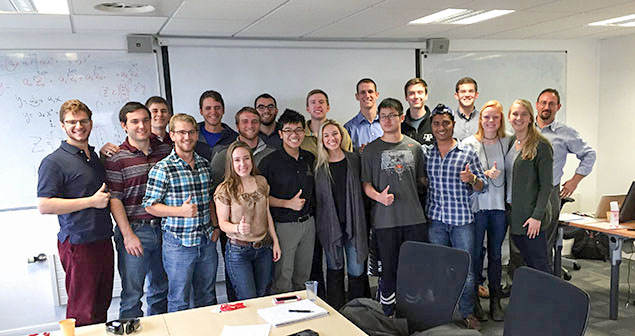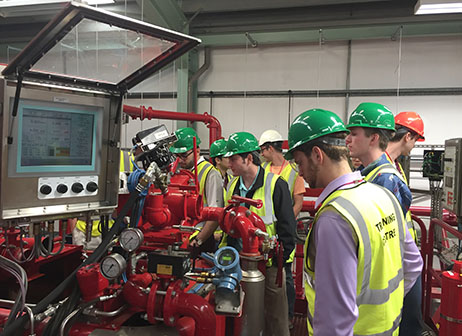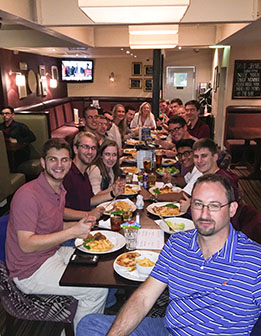
Dr. Eduardo Gildin, associate professor and the CJ Craft Faculty Fellow in the Harold Vance Department of Petroleum Engineering at Texas A&M University, recently taught the Petroleum Engineering Numerical Methods class (PETE 301) to 18 students in only three weeks, most of it while they were staying oversees in Aberdeen, Scotland, the oil capital of Europe.
The three-week class, from May 16 to June 3, is known as a Maymester Study Abroad trip. This experience was a huge benefit to the future careers of these petroleum engineering undergraduates.
Petroleum engineering is a global industry. An oil rig part, a computer program or a production method used in the United States might have come from the U.K., Brazil, or Norway. A petroleum engineer sitting in a Houston office might be managing a site in another part of the world. Hands on experience with other cultures helps students learn to work anywhere and with anyone.
“This experience taught me that I am entering a global industry that defies country borders,” said one student.
Three-week Maymester classes cover the same material a normal 15 week course does, making them a huge challenge. But they also offer small class sizes and individual attention from the professor.
“The direct benefit is interaction with the faculty,” said Gildin. “There is no other class where a student has 24 hour attention from the faculty. And I say 24 hours because I would get email messages at midnight asking questions about the coursework.”
Gildin taught the first week of this class on the Texas A&M campus. The next two weeks were taught in Aberdeen. This saved the students the cost of staying an extra week overseas and allowed much of the material to be covered in a familiar classroom. Gildin was on hand to guide any students who had never traveled outside of Texas before.
“I was responsible for them,” said Gildin. “I was with them during the regular class hours. I sent them my travel itinerary and they were welcome to join me. Many savvy students knew the travel websites and made their own way to Aberdeen. One student who had never left Texas before bought a ticket and flew with me. I had a list. I knew where the students were and what times they would arrive and leave.”
Gildin and the students stayed two weeks in the Halliburton facilities in Aberdeen. While there, they continued the petroleum class and also did technical visits. They attended a half day of lecture on well cementing and the next day visited the Halliburton cementing simulator and the cementing lab. The students mixed cement and saw the properties change under different conditions.

The students had a free long weekend for tourist adventures. They shopped and ate local food. They visited Edinburgh, St. Andrews Links, and Stonehaven. They also learned English words and customs in Scotland are very different from the United States.

“I felt like my eyes were opened to a new culture, but also to a new general way of thinking,” said another student. “It was hard to know exactly what I was getting myself into, but this trip exceeded my expectations by far. If I had the opportunity, I would definitely do it again.”
For more information about the department, please visit the Harold Vance Department of Petroleum Engineering page. To learn about other study abroad opportunities, visit the Study Abroad Programs website.